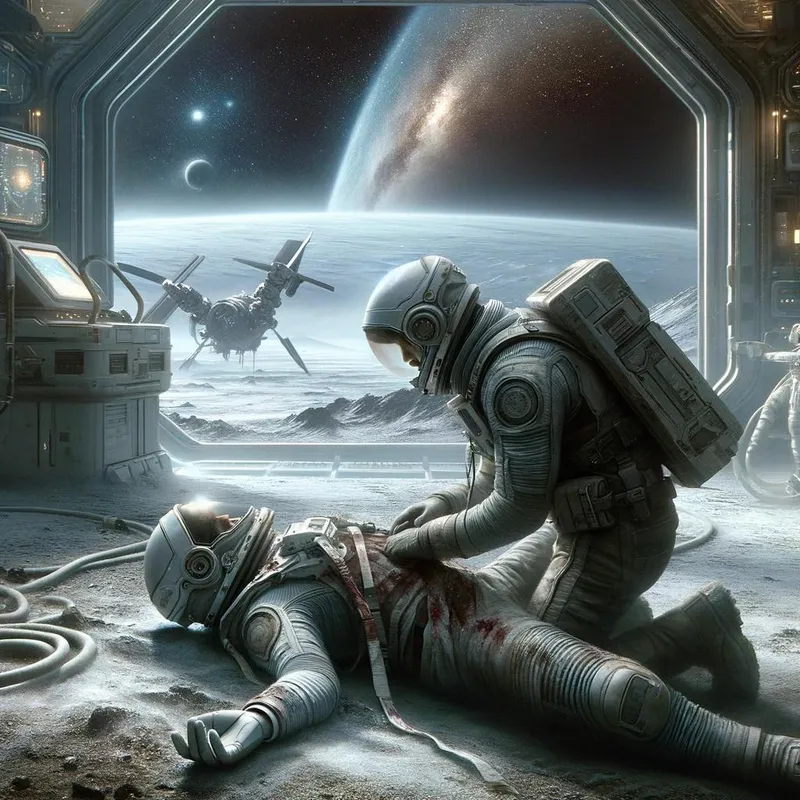Militarisation of Space: A Strategic Misstep in the Cosmic Arena
Militarising space is a strategic blunder. It jeopardizes the very infrastructure that keeps our world running, and the potential for collateral damage is astronomical.
Hey there, space enthusiast! Let’s chat about something that’s been rocketing up the news feed lately—the militarisation of space. Now, you might have heard about countries like Russia developing some concerning sci-fi-sounding weapons, like space-based anti-satellite missiles. It kind of feels like we’re living in a Star Wars movie, doesn’t it? But here’s the million-dollar question: is turning space into the next battleground really the way to go? Let’s dive into this celestial debate and see if we can find some common ground among the stars.
Why Can’t We Be Friends, Up There at Least?
Think about it—down here on Earth, we’ve got all sorts of lines drawn in the sand (or on maps, really). Borders, languages, cultures—you name it, it divides us. But space? That’s humanity’s common ground. Or, well, common vacuum, to be accurate. The idea that in space, all nations should join hands (or robotic arms) and work together isn’t just a feel-good story; it’s a vision based on the vast potential of what we can achieve together beyond our planet. If we can cooperate among the stars, why is it so hard to do the same on the ground?
Space Force: The Saga Continues
Remember when the Space Force became a thing during the Trump era? It felt like a new chapter, but really, it was more of a sequel. The U.S. Space Command was already doing its thing under the Air Force’s wing, watching over our satellites and keeping an eye on space traffic. The Space Force just put a new badge on the uniform. It’s all about protecting those invisible threads that tie our world together—satellites that handle our calls, our weather forecasts, and yes, even our Netflix streaming.
Let’s take a moment to appreciate the satellite, the unsung hero of the digital age. These high-flying gadgets are why you can check the weather on your phone, navigate to that new café, and know when to bring an umbrella. But if they were taken out? Imagine trying to find your way without Google Maps or weather apps. It’s like going back to the Stone Age, but with better coffee.
Nukes in Space: A Sci-Fi Horror Story

Now, onto a scarier topic—nukes in space. Sounds like a great sci-fi plot, right? The thing is, space isn’t that far away. If you scaled the Earth down to the size of a basketball, space starts just about a thumb’s width or just one centimeter above the surface. So, if someone decided to set off a nuke up there, it wouldn’t just be an “up there” problem. The fallout, both literal and metaphorical, could be catastrophic. We’re talking fried satellites, messed-up power grids, the domino effect of space debris. It’s a reminder that in space, our actions have weight—gravity or not.
The Cosmic Conundrum
So, here we are, pondering the militarisation of space. On one hand, it’s human nature to protect what’s ours. On the other, space offers us a rare chance to think beyond borders and conflicts. It’s a canvas as vast as our imaginations, a place where we can write new stories of cooperation and peace.
Turning space into an arena for military might is like bringing a gun to a peace rally. It misses the point. The challenges we face up there—asteroids, solar storms, the vast unknown—are reminders that we’re all in this together. Space, with its endless mysteries and opportunities, invites us to be better than our terrestrial squabbles.
A Philosophical Spacewalk
As we stand on the brink of this new frontier, let’s choose a path guided by curiosity, cooperation, and a shared sense of stewardship for the cosmos. The militarisation of space? It’s a strategic misstep, a leap backward into the gravity well of our lesser instincts. But together, we can reach for the stars with open hands, not clenched fists.
So, what do you say? Shall we make the final frontier a testament to our highest aspirations, rather than our deepest fears? The universe is vast, and in it, there’s surely enough space for us to find a better way forward.
Edited by Rahul Bansal







